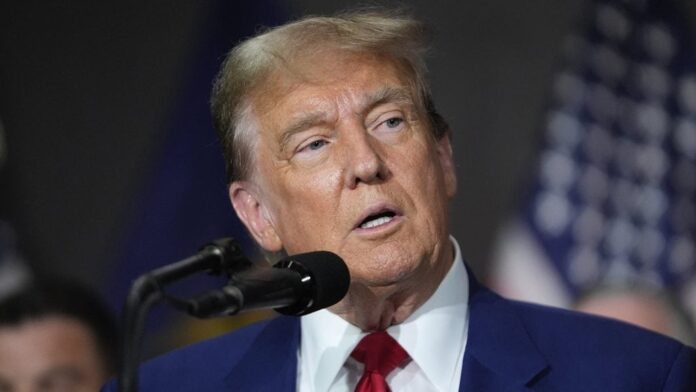The U.S. government has justified President Donald Trump’s decision to impose a 14% tariff on Nigerian exports, pointing to Nigeria’s trade restrictions on 25 categories of American goods as a key reason.
According to reports, Trump unveiled the new tariffs last week as part of his ‘Liberation Day’ trade policy, which targets almost every country, including Nigeria.
The administration argued that Nigeria imposes an average tariff of 27% on U.S. goods, which Trump described as an example of “unfair trade practices.”
Officials said Nigeria’s import restrictions, particularly in the areas of agriculture, pharmaceuticals, and consumer products, have limited access for U.S. businesses and caused significant financial losses.
These new tariffs are part of a broader set of measures that have disrupted the global economy. Major stock markets have seen sharp declines, and countries like China and Canada have announced retaliatory steps against the U.S.
A fact sheet released by the United States Trade Representative (USTR) on Monday outlined Nigeria’s restrictive trade policies, especially in the food and pharmaceutical industries.
“Nigeria’s ban on 25 product categories negatively affects U.S. exporters, especially in agriculture, medicine, beverages, and consumer goods,” the USTR said, citing restrictions on items such as beef, poultry, juices, medicaments, and alcoholic drinks. “These measures limit market access and hurt U.S. businesses seeking to grow in Nigeria.”
The economic fallout from the tariffs has been dramatic, with stock markets around the world—including in the U.S., China, the U.K., and India—posting major losses. The global sell-off resulted in a $208 billion loss for the world’s 500 richest individuals in a single day, making it the fourth-largest drop in the history of the Bloomberg Billionaires Index, and the most significant since the height of the COVID-19 pandemic.
In retaliation, China imposed a 34% tariff on U.S. products and restricted the export of essential goods like rare earths, pharmaceuticals, and food to the United States. Canada has also announced countermeasures.
In response to the 14% tariff, the Nigerian government under President Bola Tinubu is reportedly rethinking its economic policies. Naija News reports that the U.S. tariff poses a serious threat to Nigeria’s $6 billion annual exports to America, adding further pressure to an economy already strained by inflation and a weakening naira.
Nigeria’s Minister of Finance and Coordinating Minister of the Economy, Wale Edun, has acknowledged the serious economic risks posed by the tariff and voiced concerns about its broader implications.

